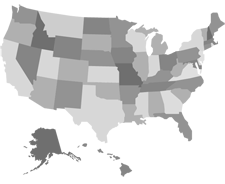Difference between secured and unsecured loans
Many people have financial problems at some point or another and could use a personal loan to help them stay afloat. Usually, financial difficulties start with an unexpected expense- maybe a car repair need or an emergency medical bill. A personal loan can be just the thing to relieve the debt and get you to the next paycheck.Personal loans come in two types- secured and unsecured. Before applying for a personal loan, it’s important to know the difference.
Secured Loans
Secured personal loans often have a longer repayment period with lower monthly payments and finance charges than an unsecured loan. In order to qualify, you must first put up some collateral. That is, you will need to pledge assets such as your home or your vehicle to back the personal loan. Because the lender's risk is reduced, it is fairly easy to get a secured personal loan. That is, providing your credit is good and you have the collateral.
Unsecured Loans
For people with bad credit or who don't own any property, an unsecured loan can be a great alternative. Loan amounts range from $100 to $25,000 and there are no restrictions on how you can use the funds. Due to the higher risk, lenders are wary of loaning large amounts to borrowers unless they believe that you will be able to repay the entire amount plus interest in a timely manner. The major disadvantage of these is that you cannot borrow as much without collateral as you can with it.
Qualifying for an Unsecured Personal Loan
As long as you are 18 years of age, earn at least $750 in monthly income with an active bank account, you may still qualify. Our online application takes a few minutes and you know if you’re approved in as little as 90 seconds. Faxing may be required for further verification.
A borrower can get an amount anywhere from $100 to $1000 deposited within one business day. Save yourself from whatever financial struggle you have unexpectedly found yourself in.
Typically, you will make out a post-dated check to the lender you choose. This check will be for the principal loan amount and added fees and finance changes. When your loan payday is due, the cash advance lender simply cashes your check. It is that simple.
Payday advances are meant to keep you financially afloat between paychecks and should never be considered a long term borrowing solution. These loans are meant to be repaid quickly, often within a couple of weeks. While timely loan payments may help build or strengthen your credit history, not paying your loan could have worse consequences.
State Guides
- Alabama
- Alaska
- Arizona
- Arkansas
- California
- Colorado
- Connecticut
- Delaware
- District of Columbia
- Florida
- Georgia
- Hawaii
- Idaho
- Illinois
- Indiana
- Iowa
- Kansas
- Kentucky
- Louisiana
- Maine
- Maryland
- Massachusetts
- Michigan
- Minnesota
- Mississippi
- Missouri
- Montana
- Nebraska
- Nevada
- New Hampshire
- New Jersey
- New Mexico
- New York
- North Carolina
- North Dakota
- Ohio
- Oklahoma
- Oregon
- Pennsylvania
- Rhode Island
- South Carolina
- South Dakota
- Tennessee
- Texas
- Utah
- Vermont
- Virginia
- Washington
- West Virginia
- Wisconsin
- Wyoming



